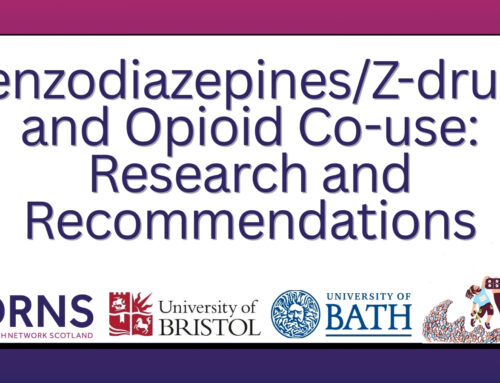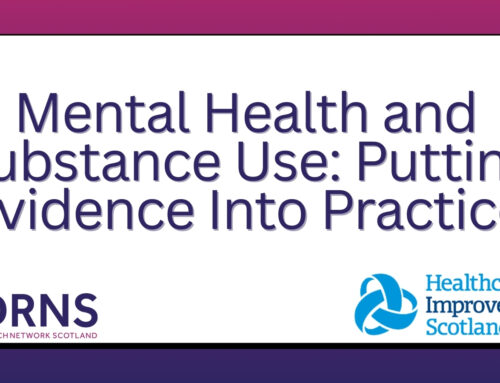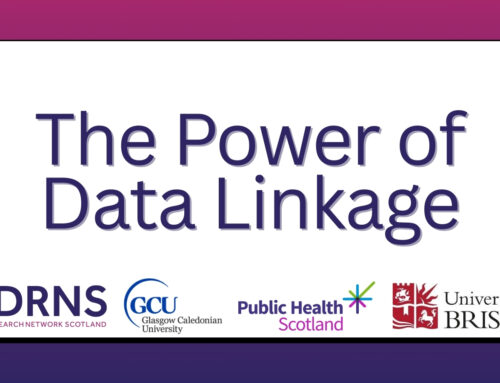Psychedelic-assisted therapy – an information session

An event report from a session run by Dr J. Hawkins and Dr J. Hawthorn. Hosted online by DRNS on April 27, 2022.
Psychedelic substances including ketamine, MDMA, ayahuasca and psilocybin have been studied regarding their therapeutic efficacy when used for alcohol, nicotine, cocaine, cannabis and opioid use disorders. It is a research field which is generating growing attention, and to find out more, DRNS recently hosted an information session run by Dr James Hawkins and Dr Jake Hawthorn.
To get us started, Drs Hawkins and Hawthorne shared the presenting duties and introduced attendees to the background of psychedelics in terms of what they are, who takes them, how, and why. By way of explanation, an interesting analogy was made, “it can be helpful to think of the brain like a mountain with deep ski tracks of repeating internal stories, ruminative thinking, rigid worry patterns and vicious spirals of toxic feelings & habits. A psychedelic trip is like a heavy fall of snow, opening a window of neural plasticity that allows new and healthier ways of thinking, feeling, and acting”.
Therapeutically, psychedelics are being considered as part of an intensive and well-supported approach with many potential uses, including for those living with trauma, treatment-resistant depression, end-of-life distress, and substance use disorders. Dr Hawkins said that the approach “allows the patient to access and safely process memories, disrupts, and brings to light old, ingrained, ruminative patterns of thinking, allows patients to create new narratives, and helps people to increase connections within brain networks, to oneself, to others, to the world at large”.
Key to the presentation was an overview of psychedelic-assisted therapy for substance use and the growing research evidence which supports it. Studies mentioned included those looking at psilocybin-assisted therapy for smoking cessation 1, MDMA-assisted therapy for alcohol use disorder 2, and ketamine-assisted therapy for at-risk drinking 3,4. Further studies are underway, but there is much research ground to cover. Drs Hawkins and Hawthorne talked about the gaps in our knowledge which still need to be filled, noting as they did, the challenges of doing so in the current legislative environment.
Dr Hawkins signposted those in need of further information to the website of the Psychedelic Health Professionals Network 5. There, a great deal of additional reading may be found. Dr Hawthorne talked about his work with the Scottish Psychedelic Research Group 6 and their plans to develop a significant clinical research trial looking at psychedelic-assisted therapy for substance use in Scotland. Noting the high drug-related death figures in Scotland and the need to respond to this with evidence-based therapeutic options, both he and Dr Hawkins signalled their hopes that Scotland would play a key research role in the international future of the field. That, of course, is something Team@DRNS are always happy to support, and we are sure we’re not alone.
DRNS members can access a video recording of the session by logging on to the DRNS members-only portal. There, they can have further discussion on the forum boards. To access these and other benefits, become a DRNS member for free.
About the speakers
James Hawkins works as an independent integrative psychotherapist with an interest in both helping to decrease distress and also increase wellbeing. He is intrigued and hopeful about the increasing evidence that psychedelics can be helpful in a range of difficult-to-treat problems including trauma and addictions. He is up-to-date with emerging research and has also helped to initiate the new Psychedelic Health Professionals Network to support other health workers who are interested in this field.
Jake Hawthorn is a specialty doctor in addiction psychiatry, working at the Harm Reduction Team in NHS Lothian. He is studying for a Masters in Contemporary Drug and Alcohol Studies at the University of the West of Scotland. He has long been interested in the therapeutic potential of psychedelic-assisted therapy and in 2021 helped to found the Scottish Psychedelic Research Group, with the goal of setting up a clinical research trial in Scotland.
Resources
- Johnson, M.W., Garcia-Romeu, A. and Griffiths, R.R., (2017). Long-term follow-up of psilocybin-facilitated smoking cessation. The American journal of drug and alcohol abuse, 43(1), pp.55-60.
- Sessa, B., Higbed, L., O’Brien, S., Durant, C., Sakal, C., Titheradge, D., Williams, T.M., Rose-Morris, A., Brew-Girard, E., Burrows, S. and Wiseman, C., 2021. First study of safety and tolerability of 3, 4-methylenedioxymethamphetamine-assisted psychotherapy in patients with alcohol use disorder. Journal of Psychopharmacology, 35(4), pp.375-383.
- Rothberg, R. L., N. Azhari, et al. (2021). “Mystical-type experiences occasioned by ketamine mediate its impact on at-risk drinking: Results from a randomized, controlled trial.” Journal of Psychopharmacology, 35(2), pp.150-158
- Grabski, M., McAndrew, A., Lawn, W., Marsh, B., Raymen, L., Stevens, T., Hardy, L., Warren, F., Bloomfield, M., Borissova, A., Maschauer, E., Broomby, R., Price, R., Coathup, R., Gilhooly, D., Palmer, E., Gordon-Williams, R., Hill, R., Harris, J., Mollaahmetoglu, O. M., Curran, H. V., Brandner, B., Lingford-Hughes, A. and Morgan, C. J. A. (2021). Adjunctive ketamine with relapse prevention-based psychological therapy in the treatment of alcohol use disorder, American Journal of Psychiatry, 179(2), pp. 152-162.
- Psychedelics Health Professionals Network https://psychedelicnetwork.org.uk/
- Scottish Psychedelic Research group http://sprg.org/






